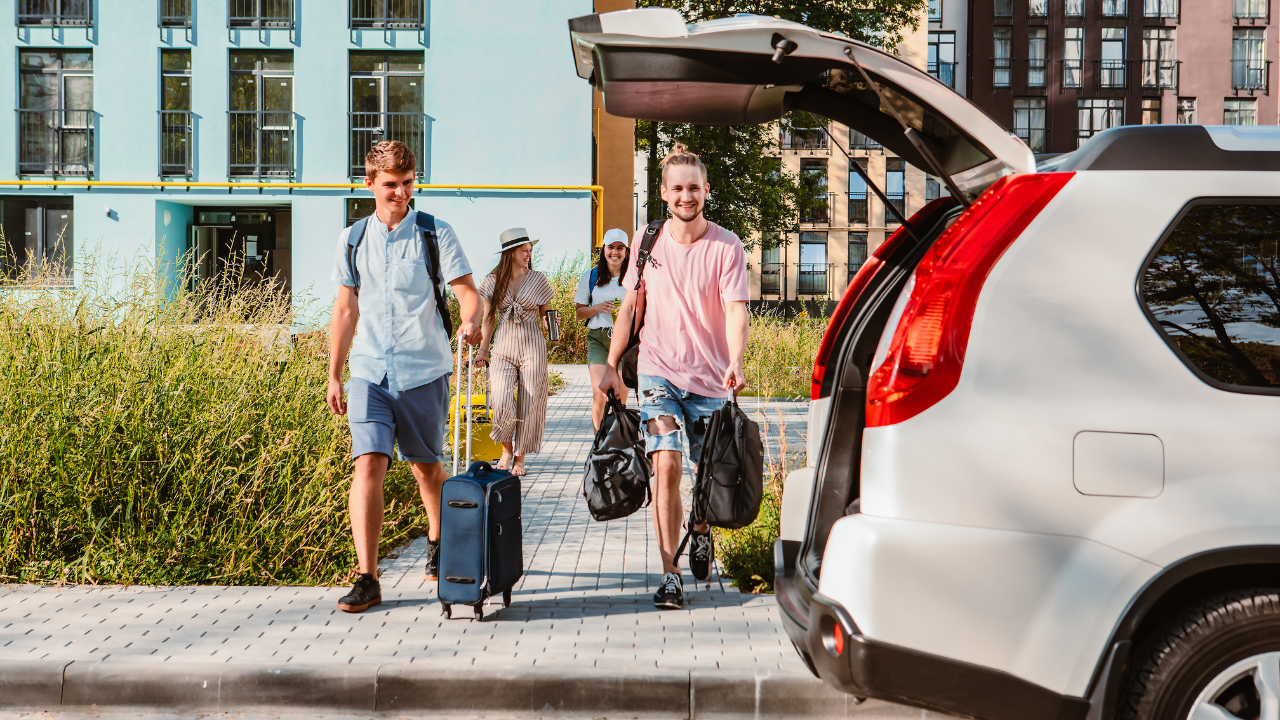As we step into 2025, the travel industry is evolving in exciting ways. From AI-powered itineraries and set-jetting inspired by blockbuster films to culinary adventures and the resurgence of all-inclusive resorts, these trends highlight a shift towards more immersive, sustainable, and inclusive travel experiences. Insights from sources like Expedia’s global survey and social media trends reveal how preferences are shaping this new era of exploration.
1. Shopping and Goods Getaways: The Rise of Niche Shopping Travel
Travel in 2025 will see a growing trend of travellers dedicating trips to hunting for unique local goods, driven by viral recommendations on TikTok and Instagram. From skincare in South Korea to rare chocolates in Dubai, these finds are shaping travel plans.
Travellers are also exploring overlooked spots like grocery stores and pharmacies to discover items unavailable back home. A global Expedia survey reveals 44% of travellers shop for local food and drinks, while 39% make it a point to visit supermarkets.
This shift reflects not just a desire for one-of-a-kind items but also a growing awareness of supporting local businesses. By shopping at neighbourhood grocers, family-owned distilleries, or independent boutiques, travellers are increasingly ensuring their money has a positive local impact.
2. The All-Inclusive Era: Luxury, Convenience, and Elevated Experiences
The “All-Inclusive Era” marks a stylish comeback, especially among Gen Z, who value the stress-free luxury these packages provide. Once associated with generic experiences, modern all-inclusives now feature celebrity-chef dining, curated wellness retreats, and immersive cultural excursions. With major brands entering the market, these resorts now attract travellers seeking high-quality, seamless holidays.
With over 2 million Instagram posts under #allinclusive, social media fuels this trend. Combining luxury, convenience, and minimal planning, these packages align with the growing demand for “budget-luxury” travel, offering both comfort and meaningful experiences.
3. Set-Jetting: Travel Inspired by Screen and Story
In 2025, movies, TV shows, and streaming services are taking centre stage as major travel influencers, with two-thirds of travellers now saying their trips are inspired by what they watch.
Leading the trend is set-jetting, where travellers visit destinations featured in their favourite series, films, or books. Thailand, for example, is poised to become a top destination following the much-anticipated release of The White Lotus season three. Similarly, the global phenomenon Squid Game will continue to boost interest in South Korea, and Japan remains firmly in the spotlight thanks to historical epic Shōgun and the upcoming Expo 2025 in Osaka.
Popular films can drive tourism and boost local economies as fans step into the worlds they love. Whether following Paddington in Peru, revisiting Ancient Rome for Gladiator 2, or exploring Everest after Letters from Everest, set-jetting makes travel immersive.
4. AI and Alternative Itineraries: Smarter, More Sustainable Travel
AI-powered trip planning is transforming travel in 2025, enabling personalised, adaptive itineraries while considering the sustainability of destinations.
The rising demand for seamless planning has doubled interest in “AI in the travel industry,” with these tools curating flights, stays, and activities tailored to individual preferences, AI also adjusts plans in real-time, managing flight delays, weather changes, or new suggestions for stress-free travel.
Furthermore, travellers are becoming increasingly aware of their impact on popular destinations. By using AI to explore lesser-known destinations and refraining from tagging specific locations in social media posts, they are helping reduce overtourism and create more sustainable experiences for both locals and visitors.
5. Comfort and Neuro-Inclusivity
In 2025, the travel industry is advancing personalised and inclusive experiences, with a growing focus on neurodivergent travellers.
AI, 5G, and VR are transforming in-flight journeys, while SpaceX’s Starlink delivers high-speed internet for immersive entertainment, productivity, and real-time updates. Airports, too, are transforming into destinations in their own right. Many travellers, especially Gen Z and millennials, are seeking out airports that offer luxury experiences, such as sleep pods, spas, and Michelin-starred dining. Layovers are increasingly seen as opportunities to relax and indulge before reaching the final destination.
Inclusivity is on the rise, with sensory-friendly spaces, noise-cancelling options, sensory rooms, and AI tools to make travel smoother and more comfortable for neurodivergent individuals. This year, travel is becoming more adaptable and supportive for all.
6. Tasty Travels: The Culinary Craze
Food is set to take centre stage in travel plans for 2025, as culinary adventures become a top priority over traditional sightseeing. Searches for “cooking tourism” have soared by 250%, and food-focused cities are attracting increasing interest, reflecting a growing appetite for immersive gastronomic experiences.
From street food markets to hands-on cooking classes, travellers are connecting with cultures through cuisine, using meals as a gateway to heritage and stories. Social media and global food trends fuel this rise, inspiring exploration of hidden gems and world-renowned dining spots.
In 2025, food tourism offers more than just meals—it delivers authenticity and meaningful encounters, letting travellers experience the world through its flavours.
Evolving travel trends for 2025 bring new opportunities and challenges for both travellers and the industry. Whether it’s providing swift roadside assistance across Europe, ensuring a seamless journey for policyholders, or offering reliable support in medical emergencies, we’re here to help. Travel Support Europe will continue delivering personalised, high-quality assistance to meet the needs of modern travellers.





